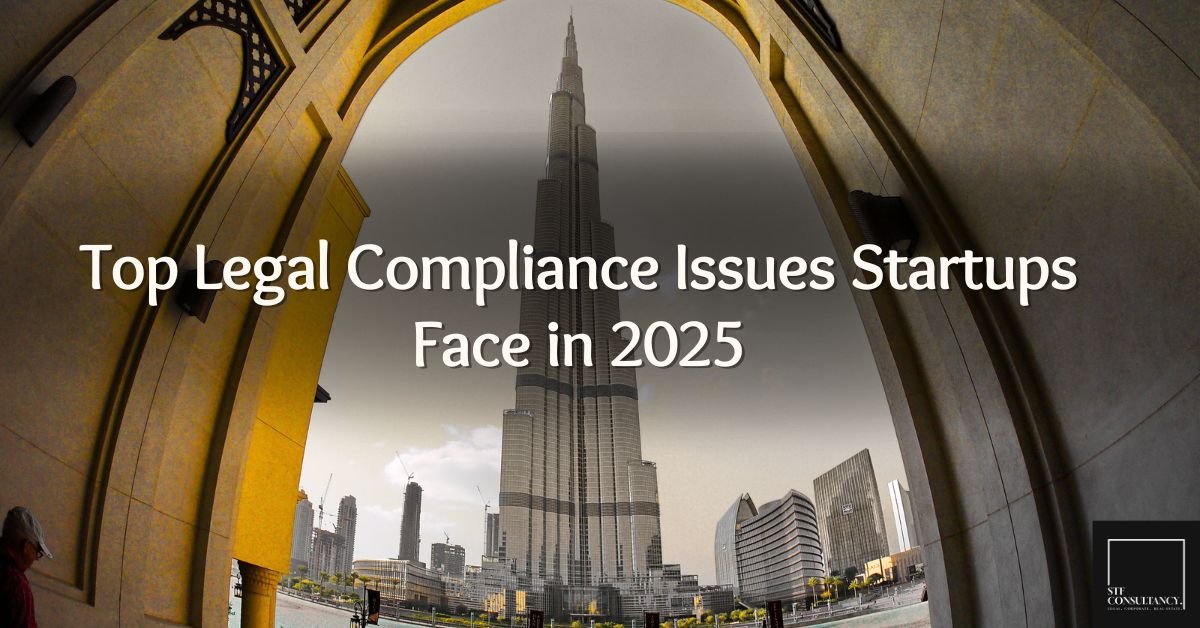Launching a startup is an exhilarating journey, but the complexities of legal compliance can quickly turn excitement into frustration. In 2025, regulatory landscapes are more dynamic than ever, with governments worldwide—including the UAE—implementing stricter laws to ensure transparency, consumer protection, and financial accountability.
For entrepreneurs considering a business setup in Dubai or elsewhere in the UAE, understanding the legal compliance issues startups face is critical. Non-compliance can lead to severe penalties, operational shutdowns, or even legal disputes.
This guide explores the most pressing compliance challenges in 2025 and how partnering with expert business setup consultants in UAE can help mitigate risks while ensuring a smooth launch.
1. Business Registration & Licensing: Choosing the Right Structure
One of the first hurdles startups encounter is selecting the appropriate business structure. The UAE offers three primary options, each with unique compliance requirements:
A. Mainland Company Setup
- Pros: Full market access within the UAE, ability to trade directly with local businesses.
- Cons: Requires a UAE national as a sponsor (51% ownership in most cases).
- Compliance Needs: Trade license from the Department of Economic Development (DED), adherence to UAE commercial laws.
B. Free Zone Company Setup
- Pros: 100% foreign ownership, tax exemptions, simplified import/export processes.
- Cons: Restricted to operating within the free zone or internationally (unless using an agent).
- Compliance Needs: Free zone authority approvals, annual audit submissions.
C. Offshore Company Setup
- Pros: Asset protection, tax efficiency, no physical office requirement.
- Cons: Cannot conduct business within the UAE.
- Compliance Needs: Registration with offshore jurisdictions like RAK ICC or JAFZA.
Why This Matters in 2025:
New regulations may introduce stricter documentation requirements, making it essential to work with business setup services in Dubai to avoid delays.
2. Employment & Labor Law Compliance: Avoiding Costly Mistakes
Hiring employees in the UAE involves navigating a complex web of labor laws. Startups often make critical errors, such as:
A. Non-Compliant Employment Contracts
- UAE labor law mandates specific clauses, including probation periods, termination conditions, and gratuity payments.
- Solution: Expert-led business formation services ensure contracts meet legal standards.
B. Visa & Work Permit Violations
- Sponsoring employees requires proper documentation, medical tests, and Emirates ID registration.
- Solution: Business setup agency in Dubai can streamlined visa processing.
C. Wage Protection System (WPS) Non-Compliance
- The UAE mandates salary payments through WPS to prevent wage abuse.
- Penalties: Fines up to AED 5,000 per employee for non-compliance.
2025 Update:
Expect stricter enforcement of remote work visas and freelancer regulations.
3. Tax Compliance: Navigating VAT & Corporate Tax
The UAE’s tax landscape has evolved significantly:
A. VAT (5%) Registration & Filing
- Mandatory if annual turnover exceeds AED 375,000 (voluntary below AED 187,500).
- Common Pitfalls: Incorrect invoice formatting, late submissions.
B. Corporate Tax (9%) for Profits Over AED 375,000
- Effective since June 2023, startups must maintain accurate financial records.
Solution: Comprehensive setup services include tax advisory and filing support.
4. Data Protection & Cybersecurity: The Growing Threat
The UAE’s Personal Data Protection Law (PDPL) imposes GDPR-like requirements:
- Mandatory Data Breach Reporting (within 72 hours).
- Heavy Fines for non-compliance (up to AED 10 million).
2025 Outlook:
Increased scrutiny on AI-driven data processing and cross-border data transfers.

5. Intellectual Property (IP) Protection: Safeguarding Your Brand
Many startups neglect IP registration, risking:
- Brand Theft: Competitors copying trademarks.
- Patent Infringement: Losing rights to innovations.
Solution: Business setup consultants in UAE assist with trademark and patent filings.
6. Anti-Money Laundering (AML) Compliance
The UAE’s Financial Action Task Force (FATF) alignment means:
- Enhanced Due Diligence for high-risk clients.
- Strict Record-Keeping for transactions over AED 55,000.
Non-Compliance Risks:
- Fines up to AED 5 million.
- License revocation.
7. Industry-Specific Regulations
A. Fintech Startups
- Central Bank licensing requirements.
- 2025 Challenge: Crypto regulations tightening.
B. E-Commerce Businesses
- Consumer rights compliance (returns, refunds).
- New in 2025: Digital tax reporting.
How STF Consultancy Ensures Compliance
We offer:
✅ Tailored Business Solutions (Mainland, Free Zone, Offshore).
✅ Ongoing Support (license renewals, legal updates).
✅ Low-Cost Business Setup without compromising compliance.
Choose STF For Business Setup
FAQs
Q1. What’s the penalty for late license renewal?
A: Up to AED 10,000, depending on the emirate.
Q2. Can I change my business structure later?
A: Yes, but it requires legal reprocessing.
Q3. How long does Dubai business setup take?
A: 7-15 days with expert assistance.





